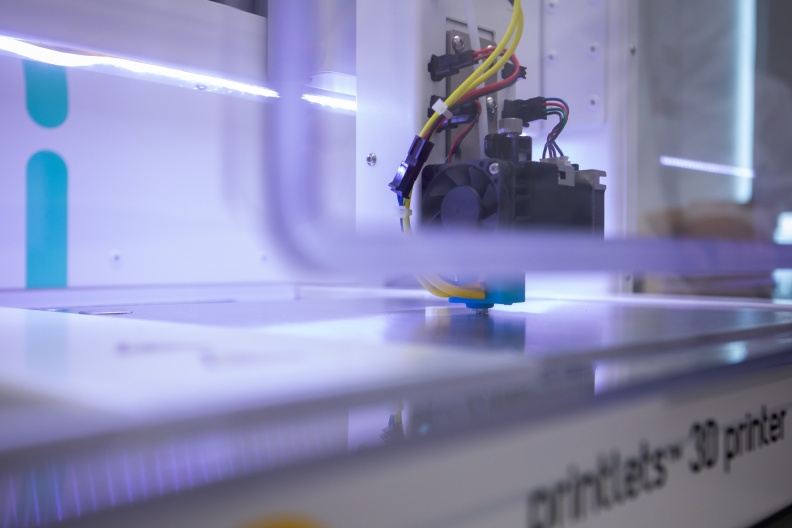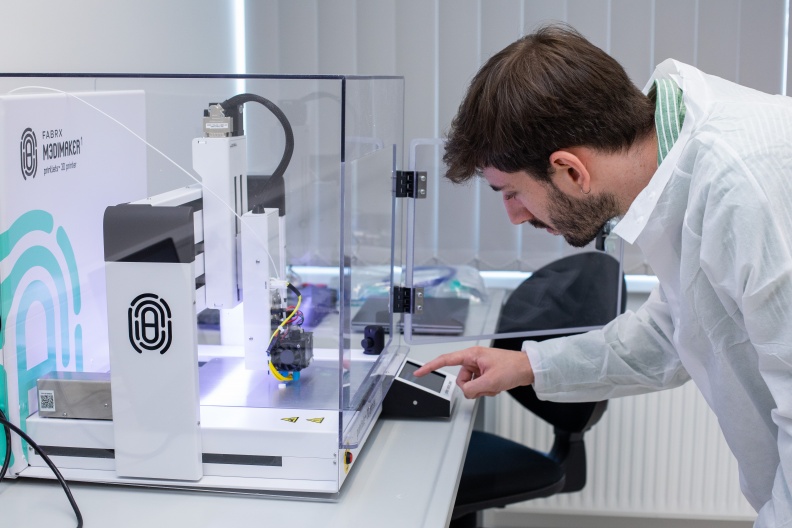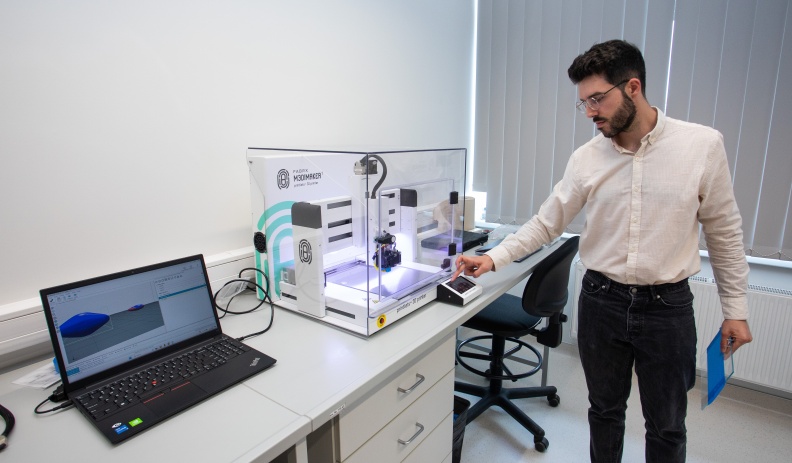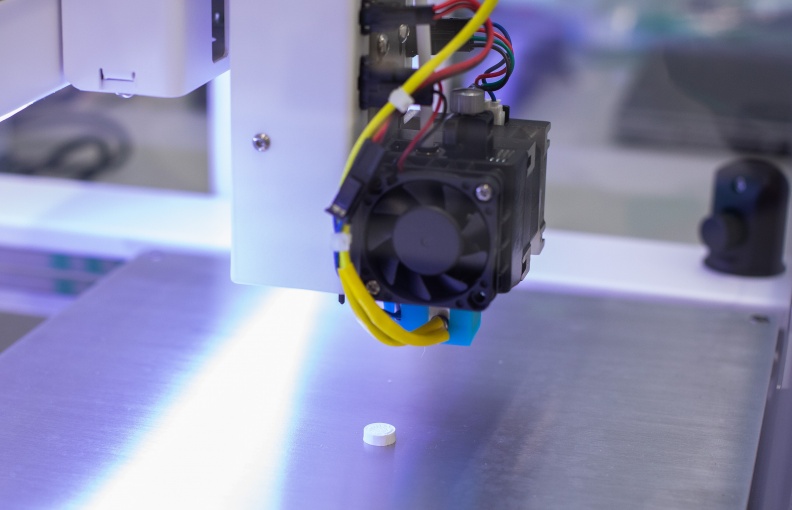Cutting-Edge Technologies in Lithuania: LSMU Launches the First Validated Pharmaceutical 3D Printer
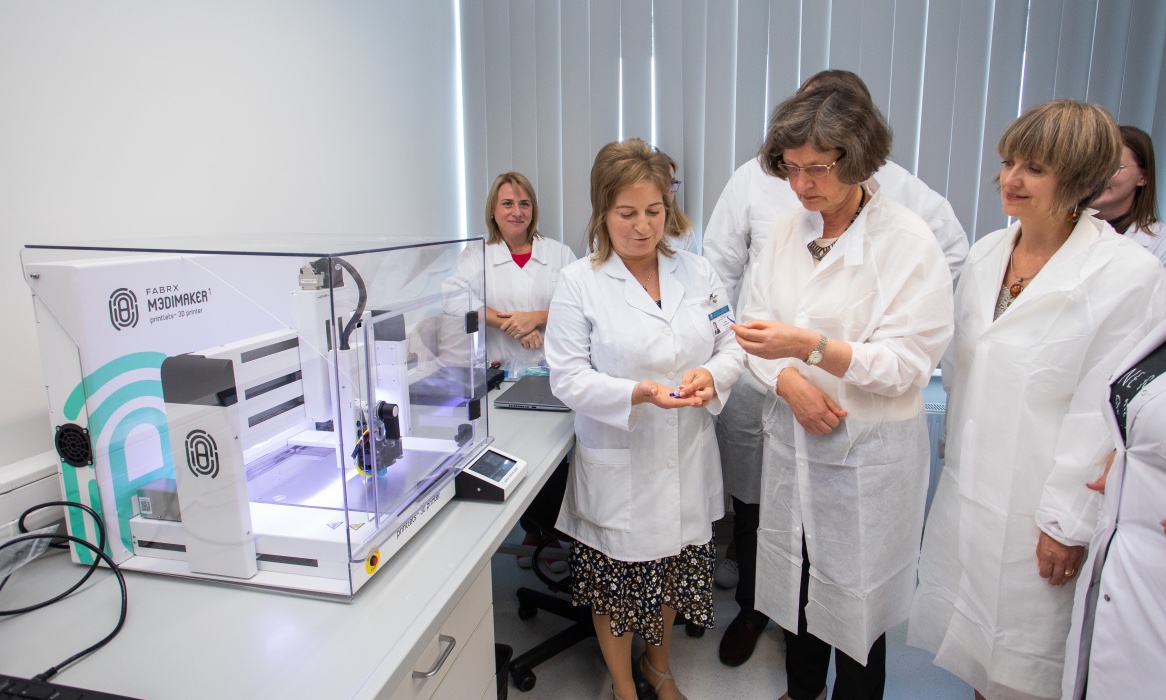
Lithuanian University of Health Sciences (LSMU) has deployed a highly anticipated innovation: the state-of-the-art three-dimensional (3D) medicine printing technologies that open a wealth of possibilities. The Faculty of Pharmacy at LSMU has deployed Europe’s first validated 3D printer for pharmaceutical tablets, one of the first in the world.
The new device sets a new course for innovation development in pharmaceutical technologies. It allows to produce personalised medicine tailored to each individual patient, increase the efficacy of medicines by combining several substances in a single tablet and reducing the side effects of medicines.
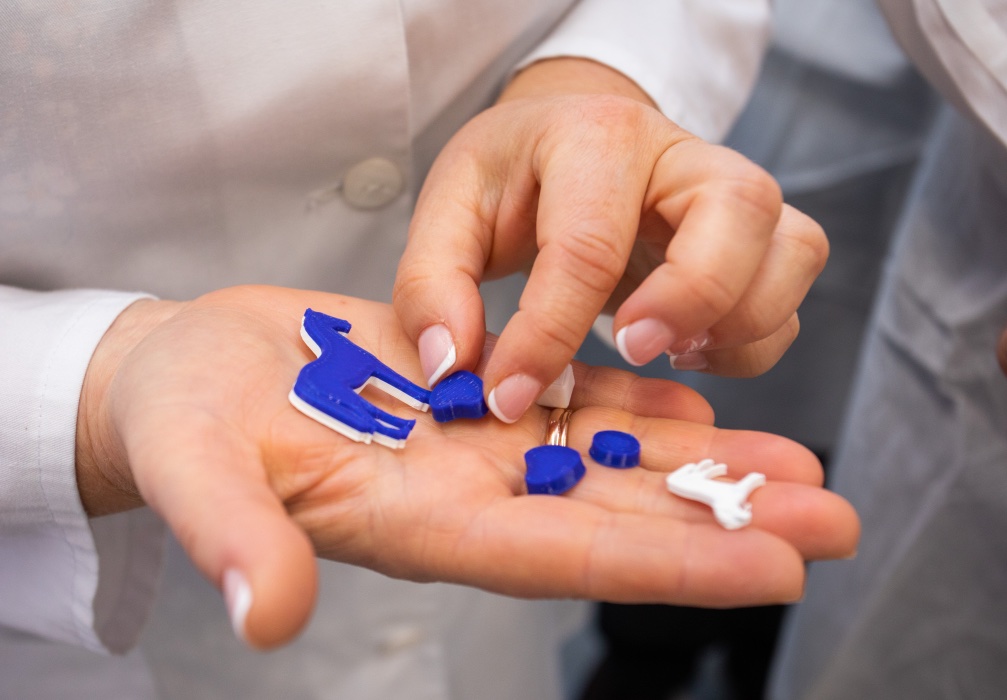
Three-dimensional printing makes it possible to embed different microcapsules into the tablets, coating them with different layers of excipients that control the release of the drug substance. This is particularly relevant for improving medicines for special patient groups such as children and the elderly.
It also opens up new possibilities for cooperation with businesses, industrial pharmacies, and hospitals.
“The future starts now!”, smiled Prof. Jurga Bernatonienė, Head of the Department of Drug Technology and Social Pharmacy at the LSMU Faculty of Pharmacy.
The University has been actively preparing for this innovation for several years. Intrigued by the potential of 3D technology in pharmaceutical production, the scientists keenly observed the debut of the first 3D-printed drugs in the U.S., delved into relevant literature, and gained hands-on experience and expertise by joining one of Lithuania’s pioneering projects to develop this technology.
However, up to this point, the majority of 3D printers available on the market have been non-validated, i.e. not designed specifically for the manufacture of medicines, but only adapted for such purpose.
The researchers waited patiently for the world’s sole manufacturer of the device to release it. They eventually acquired one of the first verified medicine printers in both Europe and globally, using money raised from their research activities. It took almost 8 years for the new device to reach the university.
First Products Based on Active Ingredients of the Crested Late-Summer Mint
The first medicines have already been printed with the device following the extensive training upon its arrival at the LSMU Faculty of Pharmacy.
Coincidentally and somewhat symbolically, the first printed tablets contained Elsholtzia ketones, an active ingredient present in the crested late-summer mint.
“The first medicine of natural origin, internationally patented, safe and well-tolerated, for the treatment of arrhythmia developed in Lithuania is one of the most successful projects of the Faculty and the University.
In recent years, we have been diligently working in this direction: conducting countless studies to identify an active ingredient that not only has antiarrhythmic effects but also lowers blood pressure. Using the latest technology, we aim to “imprint” the active ingredients into 3D tablets for rapid and maximal efficacy,” stated Prof. Bernatonienė.
Particularly pleased to highlight the opportunities for the Faculty’s students and young researchers, she noted that the first Master’s theses on 3D printing of pharmaceuticals are already being planned, and doctoral (PhD) students will also be actively involved in the development of 3D tablet forms, with three dissertation theses planned.
Technology Ranked Among the Top 10 Global Innovations
The management of the Faculty of Pharmacy is especially enthusiastic about the arrival of the new device.
Prof. Ramunė Morkūnienė, Dean of the LSMU Faculty of Pharmacy, stressed that the 3D technology for the development of pharmaceutical and cosmetic products is currently in the list of top ten global innovations. The dean considers its benefits and the associated incentives for the young generation of future pharmacists to be particularly important.
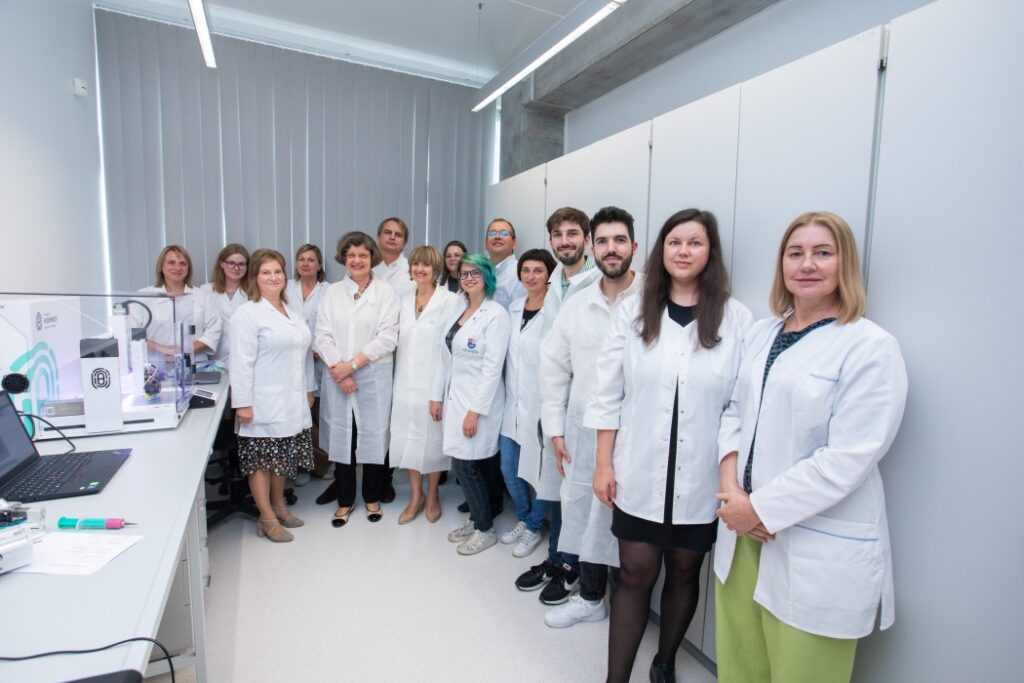
“Education at the LSMU Faculty of Pharmacy is characterised by a robust scientific foundation, and students have the opportunity to engage in research where cutting-edge technologies are used.
This year’s nominal scholarship “Future Pharmacy” serve as an incentive for our most proactive students who have proposed innovative ideas for the development of pharmaceutical products. I extend my gratitude to Prof. J. Bernatonienė’s team and would like to express my delight for the community of the Faculty of Pharmacy, which promotes the Faculty and the University. I wish them continued success, new endeavours, and discoveries,” said Prof. R. Morkūnienė.
“The application of such advanced technologies is crucial for modern pharmaceutical science and research-driven education,” emphasised Prof. Valdas Jakštas, Vice-Dean of the Faculty of Pharmacy.
According to the professor, 3D printing technologies in pharmaceutical experimental development will significantly broaden the scope for creating bespoke and “smart” pharmaceuticals. These could feature customised dosage forms, complex geometric shapes, modelled multiphase drug release, and composite formulations of multiple drug substances that are otherwise challenging to combine.
“Thanks to the cutting-edge 3D technologies, researchers and developers are reaching a pivotal moment in pharmaceutical science. 3D printing serves not only as a development tool, but also as a means to investigate newly designed pharmaceutical dosage forms, including functionalised geometric systems, polypills, and customised systems for the modelled multiphase release of active ingredients.
We are delighted that LSMU researchers and students will be able to use this advanced technology at the Faculty of Pharmacy. We hope that the results of the practical application of the technology will attract the attention of business partners, and the accumulated expertise will improve the content and quality of education,” said Prof. V. Jakštas.
The Future Lies in the Tablets with Sensors
Prof. Bernatonienė is convinced that 3D printing of medicines is a revolutionary technology that will bring many exciting changes in the future.
“In 10 to 15 years’ time, all pharmacies will have such printers,” she said. In the future, the researcher is already considering the possibility of using the 3D printer to create tablets equipped with sensors, designed to monitor the movement of the drug in the body.
